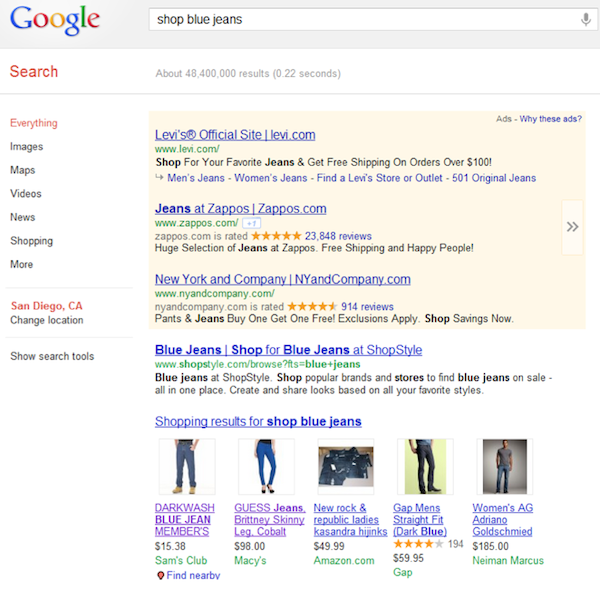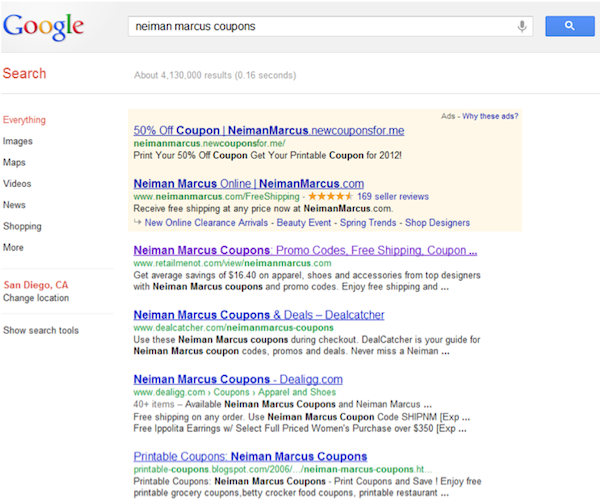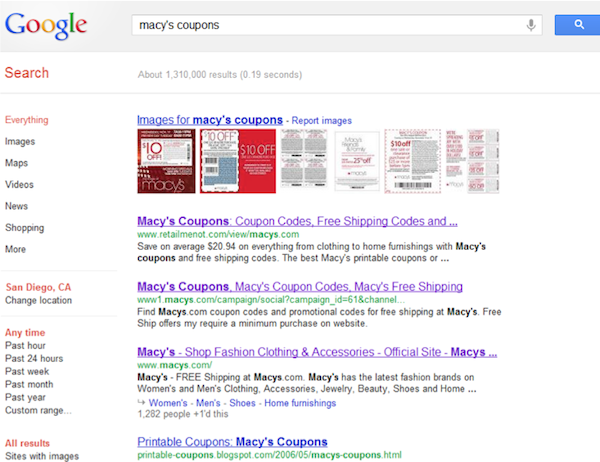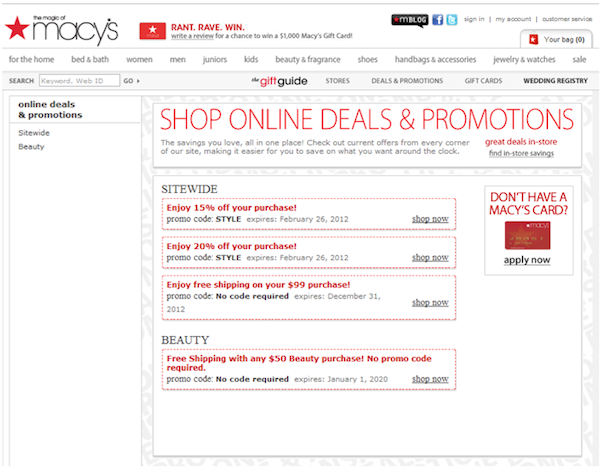Affiliates are going to hate me for this one.
Picture this:
You’re shopping online for some blue jeans. You type in [shop blue jeans] in Google to start. Up pops the results:

You’re feeling fancy (work with me here) so you click on the Neiman Marcus shopping result listed at $185 a pair.
Even though you’re feeling fancy, you’re a practical dude, (sorry ladies, these are man jeans) so you go back to Google to look for a coupon or two that can help you save some dough.

Done this before? Me too.
Check it out: A bunch of affiliates with coupon codes. You find one that suits your needs, put it in the coupon code box, and hope for the best.
Doesn’t work? No problem. Go back to the affiliate and sort through the 10+ other coupon codes on that page. There’s bound to be one that works.
And, scene!
Guess who gets credit for that sale?
Google organic, right?
Wrong.
The affiliate does.
So now you’re losing margins with the coupon and paying the affiliate a commission on that sale. And on top of that, you have a tracking problem. What was a sale through Google organic is now attributed to your affiliate partner.
Uh oh.
Ecommerce Retail End Goal: Save Money
There’s no stopping this trend: shoppers will search for deals, coupons, and special promotions more often. But one thing you can do is make sure you have your own coupon page set up to minimize the margins lost on each sale.
Macy’s does a great job of it (But even retailmenot beats them out for the top spot for coupons! At least for me):

Even so, having their listing show up at No. 2 means a good portion of that traffic searching for Macy’s coupons will click on and use one of the coupons on their website. Now that’s a money saver.
On top of that, you can bid on your own brand name in Google AdWords for cheap and put your coupon page there as well for more coverage in the search engine results pages.
Check out Macy’s coupon page. Sweet & simple. I like it.

One Problem Solved, One to Go
Lets face it, Google really was the reason why you got that sale, not the affiliate. Think these same practices could be present in other marketing channels as well? Something to think about.
The main issue is attributing resources where resources are due. Make sure you understand this relationship well. A bad picture of your sources of revenue can really put a drag on future growth.
Affiliates: Love or Hate?
I love affiliates. I really do.
All online retailers with a decent sales volume should try them out. They can add tons of value to your company. But be aware of the internal resources you’ll want to allocate to making sure that you’re tracking your sources of income correctly.
Good luck!



